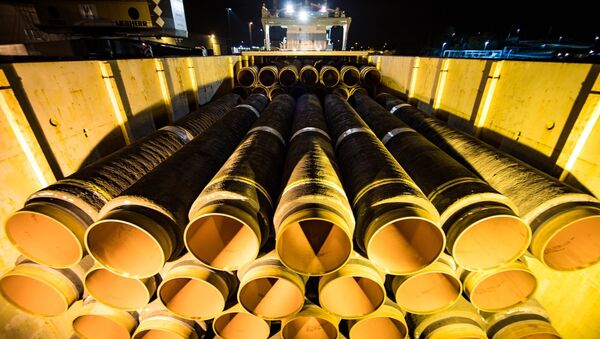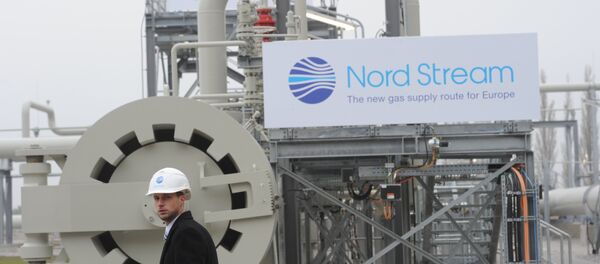In an interview with Polskie Radio, Poland's President Andrzej Duda specifically claimed that the implementation of the Nord Stream 2 gas pipeline poses a threat to Ukraine and Slovakia.
He added that Nord Stream 2 would have been "an energy threat to Poland" but for Warsaw's preventive actions.
READ MORE: Ukraine's Economy May Lose Up to 3% GDP Due to Nord Stream 2 — Finance Ministry
"Our position is unambiguous and unchanged. We believe that Nord Stream 2 is an investment that has nothing to do with the economy. This is a project of a political and strategic nature, which is mainly implemented by Russia," Duda said, expressing regret about German companies being "involved in this."
According to him, Warsaw is trying to ensure its energy security by purchasing liquefied natural gas supplies from the US as well as natural gas from the Norwegian shelf.
Duda's remarks came after former Polish Defense Minister Antoni Macierewicz argued that cooperation on Nord Stream 2 between Russia and Germany damages Warsaw's interests, which is why Poland should bolster its relations with the US.
READ MORE: 'Inappropriate:' Trump Bashes Germany Paying Russia 'Billions' for Nord Stream 2
"Germany pursues a policy of alliance with Russia and they jointly want to tighten the noose around our neck with the help of Nord Stream 2. They want to strangle both Poland and Central Europe, and forever make them dependent on their own economic and political power," Macierewicz said.
Earlier this month, the German government's deputy spokeswoman Martina Fietz said that Berlin considers the Nord Stream 2 project to be a rational one, given the expected growth in the country's demand for exported gas in the coming years.
READ MORE: Germany Opposes Discussions Hindering Nord Stream 2 – Foreign Minister
Nord Stream 2 is a joint venture between Russia's Gazprom, France's ENGIE, Austria's OMV AG, Royal Dutch Shell, as well as Germany's Uniper and Wintershall.
Due to be wrapped up before the end of 2019, the project aims to deliver 55 billion cubic meters of Russian natural gas per year to the European Union by supplying it via a pipeline under the Baltic Sea to Germany.



